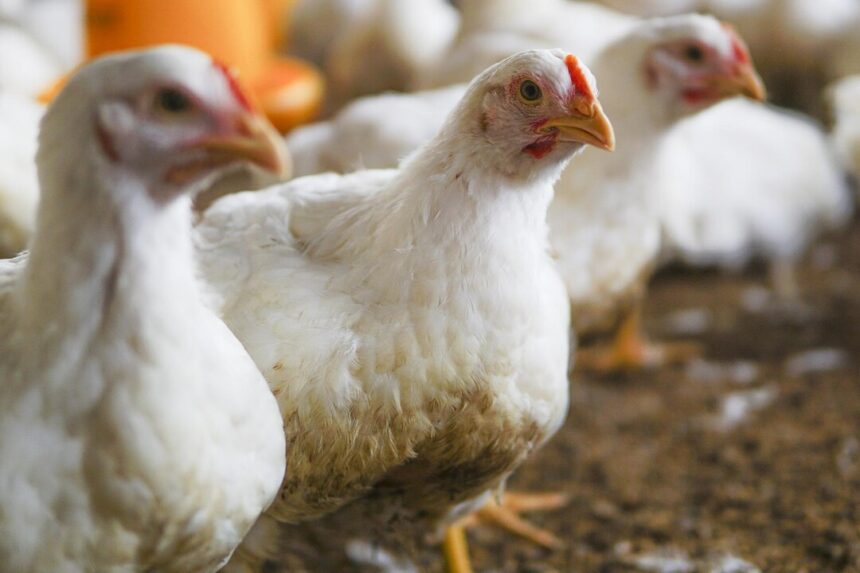White Rock chickens, renowned for their robustness, docile temperament, and excellent meat production, are a popular choice among poultry farmers in South Africa. Whether you’re a seasoned poultry enthusiast or a novice breeder, understanding the intricacies of breeding White Rock chickens is essential for success in this rewarding endeavor. Here are 10 key insights to equip you with the knowledge needed to breed White Rock chickens effectively in South Africa:
- Origins and Characteristics:
White Rock chickens, a cross between the White Plymouth Rock and the White Cornish breeds, were developed in the United States. They are prized for their fast growth, efficient feed conversion, and large breast muscles, making them ideal for meat production. Their white plumage and yellow legs are distinctive features of the breed. - Adaptability to South African Climate:
White Rock chickens exhibit excellent adaptability to various climatic conditions, making them well-suited to the diverse regions of South Africa. Whether in the temperate Western Cape or the warmer Kwazulu-Natal, White Rocks can thrive with proper management and care. - Meat Production Potential:
One of the primary reasons for breeding White Rock chickens is their exceptional meat production capabilities. These birds grow rapidly and efficiently convert feed into muscle, resulting in high-quality, flavorful meat prized by consumers. They are typically ready for processing between 8 to 10 weeks of age. - Nutritional Requirements:
Providing a well-balanced diet is crucial for the growth and development of White Rock chickens. A diet rich in protein and essential nutrients is essential for supporting their rapid growth and muscle development. Consult with a poultry nutritionist to formulate a feeding program tailored to the needs of White Rock chickens. - Housing and Facilities:
Proper housing and facilities are vital for the health and well-being of White Rock chickens. Ensure that the housing facilities provide adequate space, ventilation, and protection from predators and adverse weather conditions. Cleanliness and hygiene are also essential to prevent disease outbreaks. - Breeding Programs:
Developing a strategic breeding program is key to maintaining and improving the characteristics of White Rock chickens. Consider factors such as growth rate, feed efficiency, and meat quality when selecting breeding stock. Implementing selective breeding practices can help achieve desired traits in subsequent generations. - Health Management:
Maintaining the health of White Rock chickens is paramount for a successful breeding operation. Implement a comprehensive health management program that includes regular vaccinations, parasite control, and disease monitoring. Practice good biosecurity measures to prevent the introduction and spread of diseases. - Reproductive Management:
Efficient reproductive management is essential for maximizing hatchability and fertility in White Rock chickens. Monitor breeding pairs closely, ensure optimal nutrition, and provide suitable nesting areas to encourage broodiness and egg laying. Implementing artificial insemination techniques can also enhance breeding success. - Broiler Production Systems:
White Rock chickens are well-suited to modern broiler production systems, which prioritize efficiency and productivity. Consider implementing intensive production systems such as controlled environment housing, automated feeding, and ventilation systems to optimize growth and performance. - Market Demand and Profitability:
Before embarking on breeding White Rock chickens, assess market demand and profitability potential in your area. Conduct market research to identify potential buyers, such as local restaurants, supermarkets, and direct-to-consumer channels. Establishing strong marketing channels and pricing strategies is essential for maximizing profitability.
Breeding White Rock chickens in South Africa offers a lucrative opportunity for poultry farmers to capitalize on the growing demand for high-quality meat products. By adhering to best practices in breeding, nutrition, health management, and market analysis, breeders can establish a successful and sustainable White Rock chicken breeding operation that contributes to the country’s thriving poultry industry.
Join 'Farmers Mag' WhatsApp Channel
Get the latest Farming news and tips delivered straight to your WhatsApp
CLICK HERE TO JOIN






